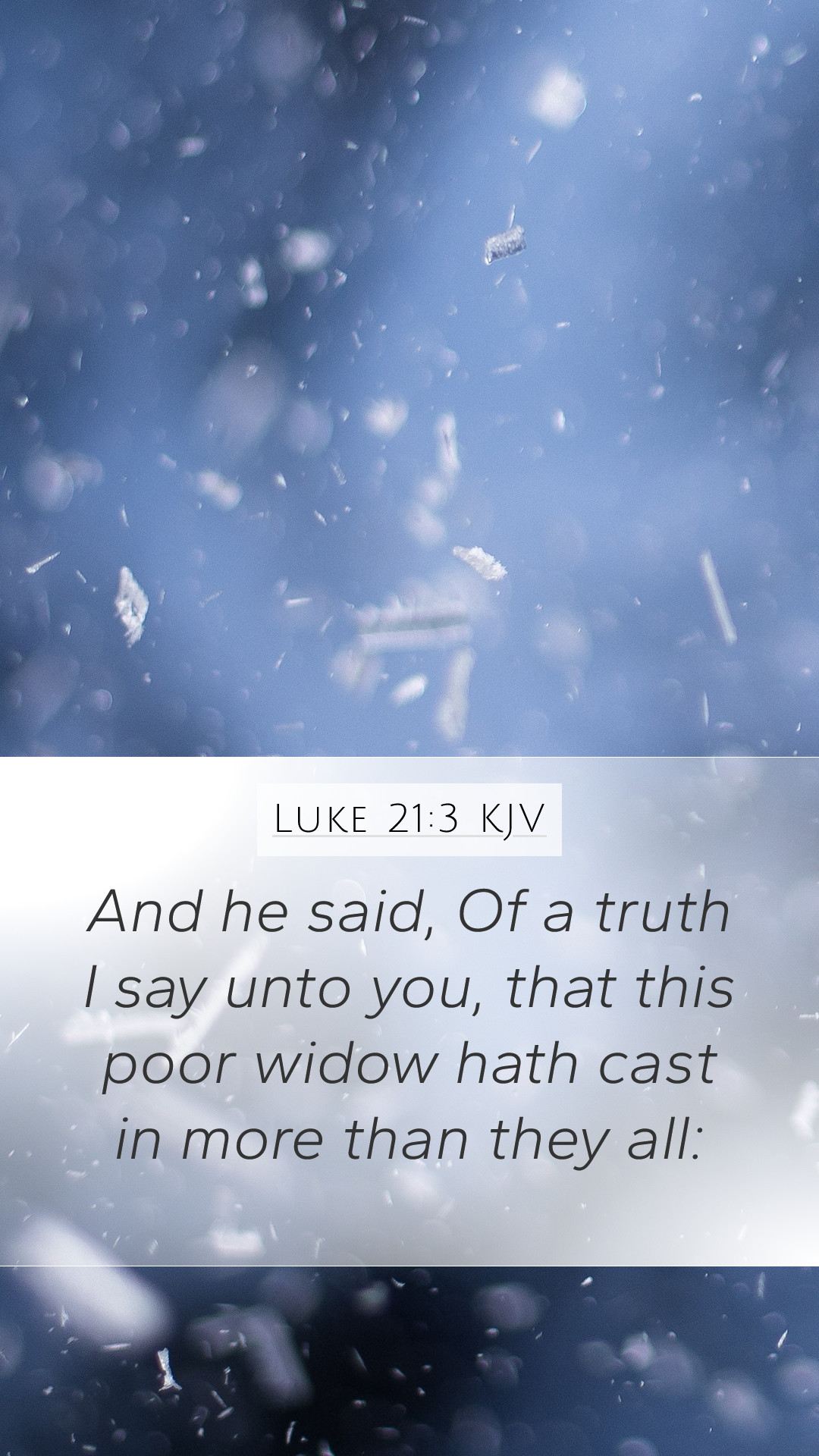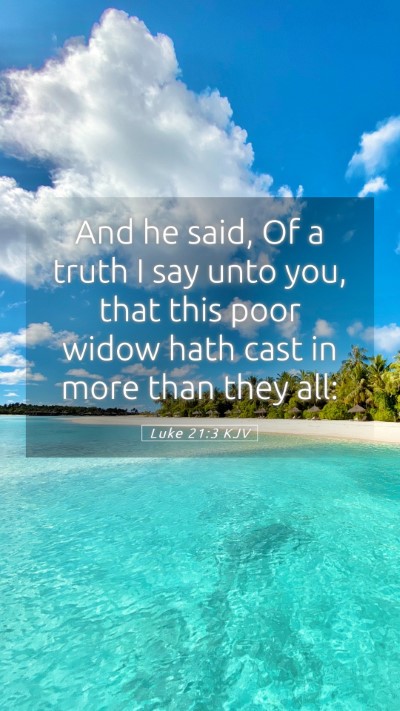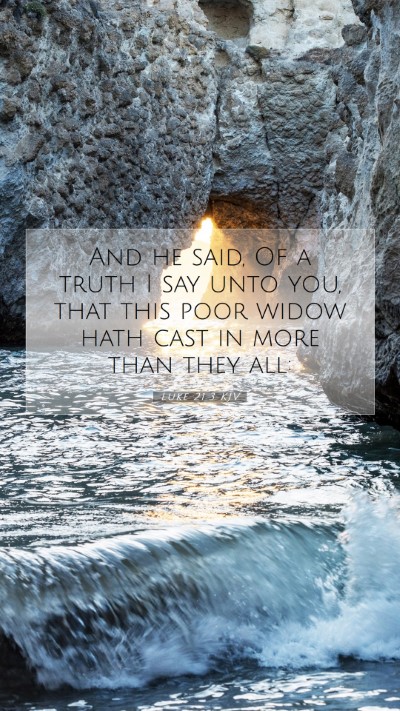Bible Verse Commentary: Luke 21:3
Verse: "And he said, Of a truth I say unto you, that this poor widow hath cast in more than they all:" (Luke 21:3, KJV)
Introduction
The meaning of Bible verses can often be deep and multi-faceted, as illustrated in Luke 21:3. This passage captures a profound teaching of Jesus concerning true value in God's eyes, using the example of a poor widow's offering. In this commentary, we will explore various insights from public domain commentaries, providing a comprehensive understanding of this passage.
Context of the Verse
This Scripture takes place in the context of Jesus observing the treasury box in the temple. He contrasts the gifts of the wealthy with that of a poor widow, which draws attention to the heart behind the act of giving rather than the amount given.
Insights from Commentaries
-
Matthew Henry's Commentary
Matthew Henry emphasizes that the widow's offering, though meager in monetary value, displays her abundant faith and devotion to God. He argues that the worth of a gift is not determined by its earthly value but by the spirit in which it is given. In the eyes of God, the widow gave all she had, thereby reflecting a greater sacrifice than those who gave out of their abundance.
-
Albert Barnes' Commentary
In his commentary, Albert Barnes highlights the lesson Jesus shares about the nature of true giving. He notes that while the rich contributors gave from their surplus, the widow gave from her poverty, illustrating a principle that often those in humble circumstances exhibit greater generosity and faith. This contrasts with the religious leaders of the day, who were more concerned with outward appearances and the quantity of their contributions.
-
Adam Clarke's Commentary
Adam Clarke provides a historical perspective, noting the cultural and societal implications of a widow's status. He observes how the widow's act serves as a critique of the religious elite who neglect the poor. Clarke suggests that this moment in scripture epitomizes a recurrent biblical theme: God’s preference for those who are humble and marginalized. The widow's faith serves as an encouragement for all believers to give selflessly and to trust in God's provision.
Spiritual Lessons
This verse teaches several important spiritual lessons:
- Heart of Giving: The intention behind our offerings matters more than the amount.
- Faith and Trust: The widow's example encourages believers to trust God fully, even when resources are scarce.
- God’s Value System: God's perspective on wealth and sacrifice differs from the world's; He values heart over hand.
Applying the Verse to Daily Life
Application of Bible verses to daily life requires introspection about how we view our contributions, whether they be financial, emotional, or spiritual. This passage challenges believers to consider:
- Generosity in Scarcity: How can we show generosity when resources are limited?
- Faith in Giving: Are we willing to give sacrificially, trusting God's provision?
- Serving the Marginalized: What can we learn about supporting those who are less fortunate?
Cross References
This verse relates to several other biblical passages that reinforce its themes:
- Mark 12:43-44: Another account of the widow's offering.
- 2 Corinthians 8:1-5: Paul speaks of the generosity of the Macedonian churches.
- James 1:27: True religion involves caring for widows and orphans.
Conclusion
The exploration of Luke 21:3 reveals profound truths about the nature of giving and God's perspective on our sacrifices. Through the insights of esteemed commentators like Matthew Henry, Albert Barnes, and Adam Clarke, we gain a rich understanding of this Scripture. For Bible study groups, online Bible study, and individual believers seeking deeper understanding, this passage serves as a powerful reminder of the importance of our heart posture in all acts of service and giving.


